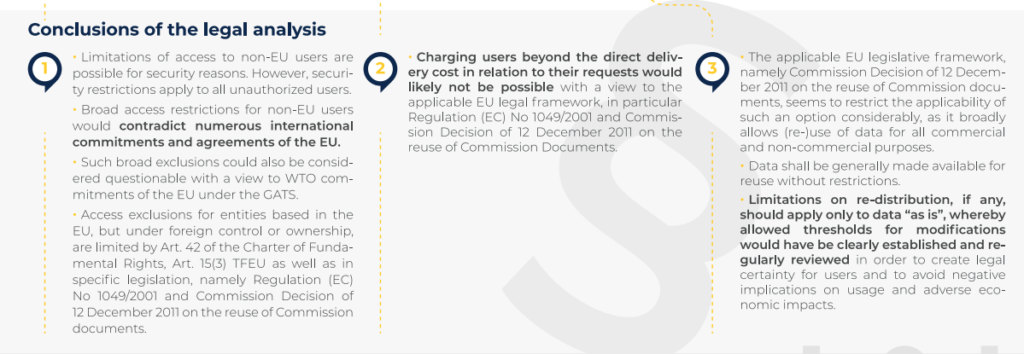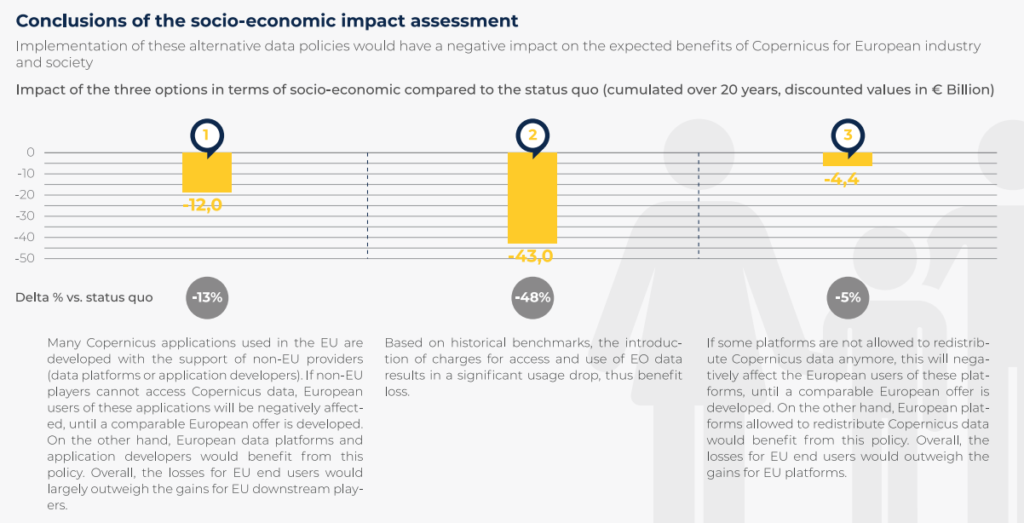In light of the proposal for a regulation for the EU Space Programme, the European Commission decided to evaluate the data policy. This was driven by the large numbers of Copernicus users globally, the evolution of the Copernicus programme with potentially 6 new missions in the 2021-2027 Multi-Annual Framework, and the evolution of the technical and business landscape.
Three alternative options were considered and compared to the current data policy:
- Restricting data access to EU citizens
- Charging all users, except European public institutions, for Copernicus data and information access
- Allowing access to all users but limiting the redistribution rights to those entities who have agreements with the EU
Based on the conducted analyses, the Copernicus free and open data policy remains the most relevant option compared to alternative options. First and foremost, all three options are seriously constrained – if not made impossible – by existing EU regulation and international commitments. Even assuming that a legal way is found, these options would entail significant operational costs for Copernicus, requiring a control and enforcement mechanism to be developed. A change in the free and open data policy would also have a negative socio-economic impact for EU citizens, while in some cases benefiting to some EU stakeholder groups (e.g. the EU big data industry). Finally, these three options would expose the EU to strategic risks, in particular retaliations from third countries.



More information can be found on the Copernicus website in the study and its main outcomes.